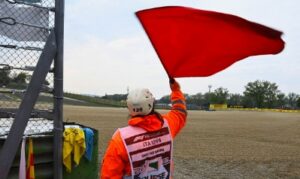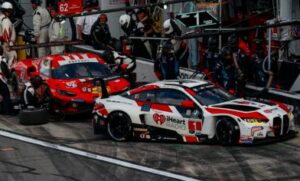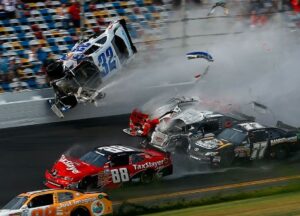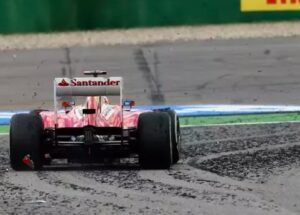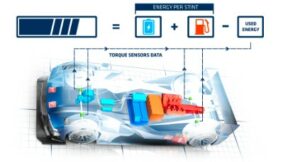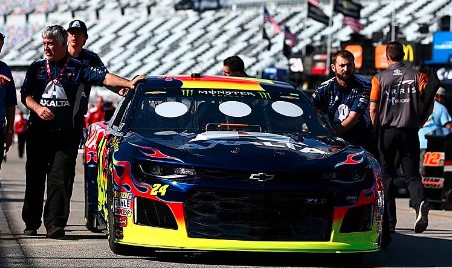
Racing inspectors play a vital role in ensuring the safety, integrity, and fairness of motorsport events around the world. From conducting pre-race inspections to enforcing regulations on the track, these dedicated professionals are instrumental in maintaining the high standards of competition that define the sport. This comprehensive exploration delves into the duties, responsibilities, and challenges faced by racing inspectors, with a special focus on their role at the renowned Thunderbird Speedway.

The Role of Racing Inspectors
Racing inspectors are responsible for upholding the rules and regulations set forth by governing bodies such as the International Automobile Federation (FIA) and local racing associations. Their primary objective is to ensure that all vehicles, equipment, and participants comply with safety standards and competition rules.
Pre-Race Inspections
Prior to each race, racing inspectors conduct thorough inspections of participating vehicles to verify compliance with technical specifications and safety requirements. This includes checking engine components, chassis integrity, safety harnesses, and other critical systems to ensure that they meet established standards.
On-Track Oversight
During races, racing inspectors monitor on-track activities to enforce rules and regulations, respond to incidents, and address safety concerns. They have the authority to issue penalties, warnings, or disqualifications for infractions such as reckless driving, vehicle malfunctions, or violations of track etiquette.
The Importance of Safety
Safety is paramount in motorsports, and racing inspectors play a crucial role in minimizing the risk of accidents and injuries on the track. By enforcing safety standards and conducting inspections, they help to create a safe and controlled environment for drivers, spectators, and track personnel.
Vehicle Safety
Racing inspectors pay close attention to vehicle safety features such as roll cages, fire suppression systems, and seat belts to ensure that drivers are adequately protected in the event of a crash or rollover. They also inspect tires, brakes, and suspension components to prevent mechanical failures that could lead to accidents.
Track Safety
In addition to vehicle safety, racing inspectors oversee track conditions and facilities to identify potential hazards and ensure that safety protocols are followed. This includes inspecting barriers, fencing, and runoff areas to minimize the risk of collisions and injuries during races.
Ensuring Fair Competition
In addition to safety considerations, racing inspectors are tasked with maintaining fair and equitable competition on the track. This involves enforcing rules related to vehicle performance, driver conduct, and adherence to race procedures.
Technical Compliance
Racing inspectors verify that all vehicles comply with technical regulations governing engine specifications, weight limits, aerodynamic enhancements, and other performance-related factors. This helps to ensure a level playing field where success is determined by skill and strategy rather than technical advantages.
Sportsmanship and Conduct
Racing inspectors also monitor driver behavior and sportsmanship during races, penalizing individuals who engage in unsportsmanlike conduct, dangerous maneuvers, or deliberate rule violations. Their presence on the track serves as a deterrent to reckless driving and promotes a culture of fair play and respect among competitors.
Challenges and Considerations
While the role of racing inspectors is essential to the integrity of motorsport events, it is not without its challenges and considerations. These professionals must navigate complex regulations, manage competing interests, and make split-second decisions in high-pressure situations.
Regulatory Compliance
Race inspectors must stay abreast of constantly evolving regulations and technical specifications set forth by governing bodies and race organizers. This requires ongoing training, education, and collaboration with industry stakeholders to ensure consistent interpretation and enforcement of rules.
Communication and Diplomacy
Effective communication and diplomacy are essential skills for racing inspectors, who often find themselves mediating disputes, addressing complaints, and interacting with drivers, team members, and event officials. Building rapport and maintaining professionalism are key to fostering positive relationships and resolving conflicts on and off the track.
Racing Inspectors at Thunderbird Speedway
Thunderbird Speedway, located in Oklahoma, is renowned for its fast-paced racing action and passionate fan base. Race inspectors at Thunderbird Speedway play a crucial role in overseeing events. Thus ensuring the safety of participants and spectators, and upholding the track’s reputation for fair and competitive racing.
Safety Protocols
At Thunderbird Speedway, race inspectors work closely with track officials and safety personnel. They implement rigorous safety protocols and emergency procedures. This includes coordinating medical response teams, monitoring track conditions, and enforcing safety guidelines to minimize the risk of accidents and injuries.
Technical Scrutiny
In addition to safety oversight, racing inspectors at Thunderbird Speedway conduct meticulous technical inspections to verify compliance with track-specific rules and regulations. This includes scrutinizing vehicle modifications, tire selections, and other performance-enhancing factors to maintain parity and competitiveness among competitors.
Conclusion
Racing inspectors are unsung heroes of motorsports. Those whose dedication, expertise, and vigilance ensure the safety and fairness of racing events around the world. From conducting pre-race inspections to enforcing on-track regulations. These professionals play a vital role in upholding the integrity of the sport and preserving its rich tradition of competition and camaraderie. Motorsports continue to evolve and grow in popularity. With it, the importance of racing inspectors in safeguarding the future of the sport is not to overstate.

